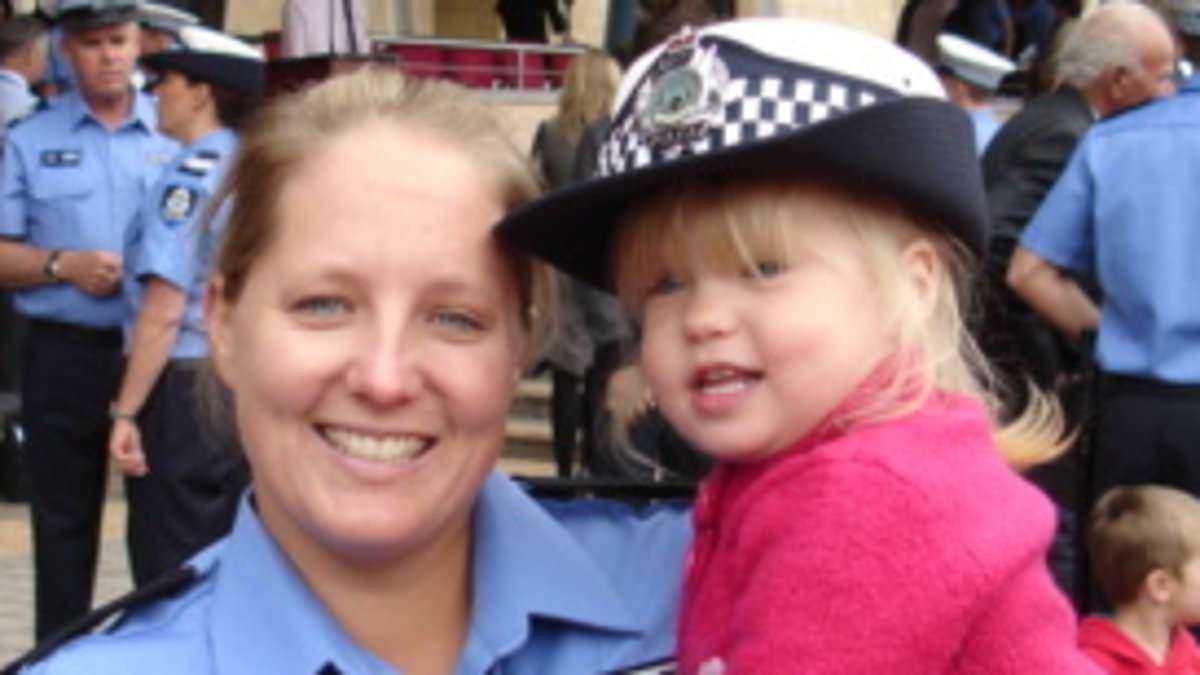A former child abuse detective has exposed two subtle but sinister tactics predators use to get close to children, warning that it’s not just the kids being groomed – it’s the adults too.
Kristi McVee, who spent a decade as a senior detective with the Western Police Force specialising in child abuse, says parents are often unknowingly the first target in a predator’s plan.
Now the founder of Child Abuse Prevention and Education (CAPE), Ms McVee is on a mission to educate parents on the real-world grooming tactics she witnessed during years of harrowing frontline work.
‘There are two things child sex offenders do to groom adults so they can get close to kids,’ she told viewers in a video last month.
‘Number one, they want you to like them. Number two, they need you to trust them.’
She explained that offenders often embed themselves into a family’s life, posing as friends, mentors or even community helpers, to gain the trust they need to be left alone with a child.
‘If they’re not someone who is in your family already, like a parent or a grandparent, they’re going to be someone introduced to your family.
‘They’re going to need you to trust them.’
Ms McVee warned that there’s no single blueprint for how predators earn trust, but there are common threads.
‘How this looks depends on the person, but they’re very friendly, very helpful, offering opinions, offering advice, wanting to help coach or wanting to help support, it’s dependent on the child and the relationship,’ she said.
‘If it’s a coach, for instance: ‘Your child’s very special, they need extra support.’
‘If it’s a friend who wants to get closer to your children: ‘Let me take them for the weekend so that you can have a night off.’ It really depends.
‘They want you to like them and they want you to trust them so they can get your children alone with them.’
Ms McVee also shared some of the common red flags that parents often miss.
She said predators may try to normalise inappropriate physical contact, such as giving excessive hugs, kisses, or insisting on children sitting on their lap.
They may touch the child in ways that aren’t necessary, including around areas close to their private parts, she said.
They often seek out alone time with children and go out of their way to arrange situations where other adults aren’t present, such as sleepovers, private tutoring, or ‘special’ playdates.
In many cases, the adult will keep secrets with the child and ask them not to tell their parents, using phrases like ‘this is our little secret’ or ‘I’ll get in trouble if you tell.’
They may also shower the child with special treats, extravagant gifts, or foods their parents have said no to, as a way of building loyalty and complicity.
Another tactic involves treating the child as if they’re more mature than they are, including exposing them to adult content.
Predators may create opportunities for nudity or semi-nudity, for instance by offering to bathe or change the child, and showing little regard for their privacy.
In some cases, they’ll deliberately undermine the parents, dismissing their rules, going behind their back, or brushing off the importance of teaching body safety and abuse prevention.
Ms McVee said the risk is greater than many parents realise, warning that one in three girls and one in five boys will be sexually abused before the age of 18.
Disturbingly, more than 90 per cent of the time, the offender is someone the child knows.
Her own awareness of the scale of the problem began in her first week as a police officer. She said she was shocked by how widespread abuse was, and how little understanding the public had of how it really happens.
Through her organisation, CAPE, she now works to bridge that gap by sharing her insights through blogs, educational resources and social media. She explained that grooming is rarely a random act, instead, it follows a pattern.
Most predators go through five stages: identifying a victim, building a connection, isolating the child, initiating abuse, and then maintaining control.
Her key advice to parents is to teach their children the difference between feeling safe and unsafe, because children, especially very young ones, don’t always recognise when something is wrong.
‘Sometimes children don’t understand what it means to feel unsafe, so they don’t understand when something inappropriate is happening,’ she said.
‘When I talk with kids as young as two or three, I’ll say, ‘When I feel unsafe I get butterflies in my tummy, my hands feel sweaty and my voice is shaky.’ That helps kids to identify if they’re feeling unsafe.’
She also urged parents to be wary of adults who appear too eager to spend time with their children.
‘Look out for those people who are paying way too much attention to kids,’ she said.
‘No one should want to spend more time with your child than you want to spend with your child. Even as parents, we don’t always want to be around our kids, they’re annoying at times. There is not one adult that should want to be around your child more than you.’
For more information and access to free resources, parents can visit Ms McVee’s website, Child Abuse Prevention and Education .
Free and confidential help is available 24/7 at Kids Helpline on 1800 55 1800.
